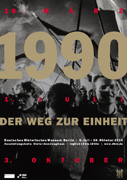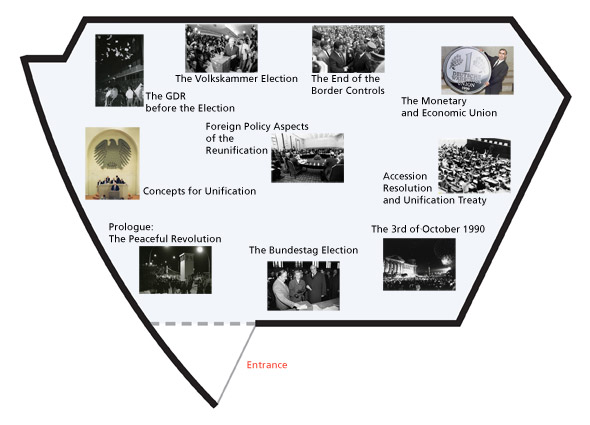


Accession Resolution and Unification Treaty
In the summer of 1990 the economic downfall and internal dissolution
of the GDR accelerated; the coalition government broke apart at the
beginning of August. Earlier and earlier dates for unification were
discussed.  In the night of 22 to 23 August a special session of the
Volkskammer came to a decision: with 294 to 62 votes the parliament
adopted a joint motion of the CDU/DA, DSU, FDP and SPD parliamentary
groups declaring the accession of the GDR to the area covered by
the Basic Law of the Federal Republic, effective as of 3 October 1990.
In the night of 22 to 23 August a special session of the
Volkskammer came to a decision: with 294 to 62 votes the parliament
adopted a joint motion of the CDU/DA, DSU, FDP and SPD parliamentary
groups declaring the accession of the GDR to the area covered by
the Basic Law of the Federal Republic, effective as of 3 October 1990.
The extensive Unification Treaty of 31 August settled fundamental legal matters. Besides changes in the Basic Law it regulated numerous institutional and financial questions. By request of the East German side it determined Berlin to be the capital of the united country, but left the question of the seat of government open.
The GDR authorities were able to get their way on other matters as well. For a transitional period the more liberal East German legislation on abortion was to remain in effect in the new Länder. The files of the Stasi were to be made available for processing. Expropriations of property by the Soviet occupation authorities in the period before 1949 were not to be contested, but those that occurred at a later time were to be revised according to the principle of “return before compensation”.

